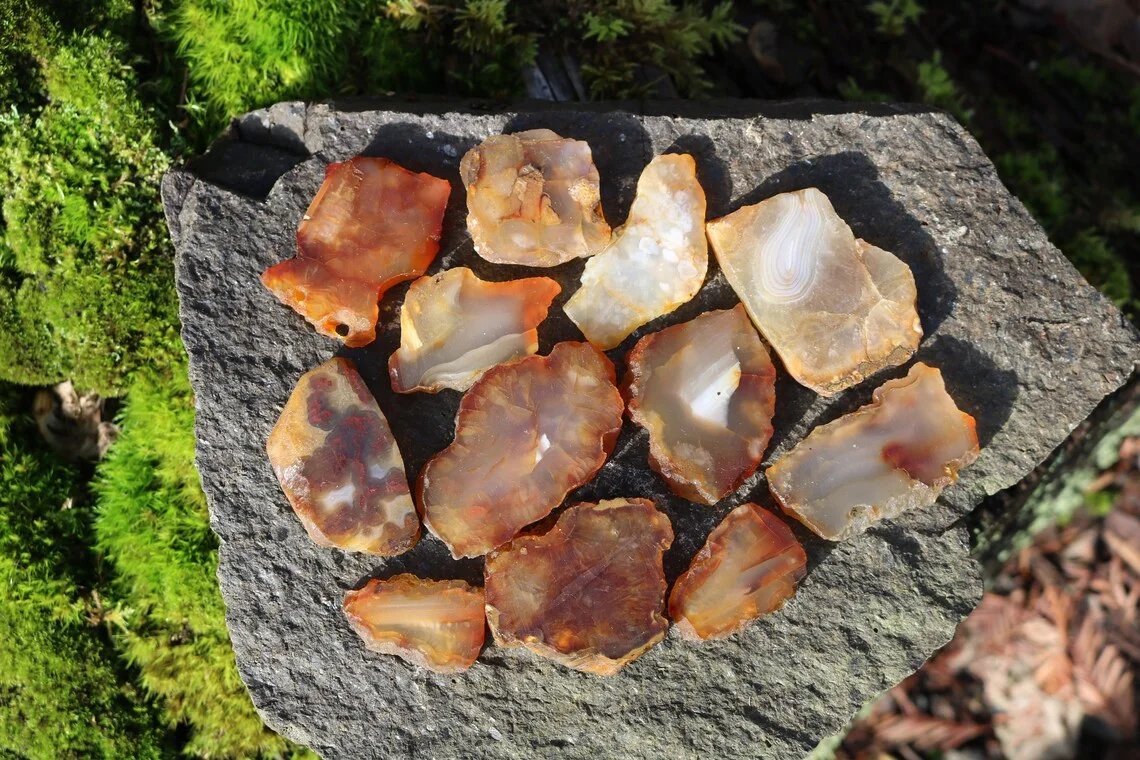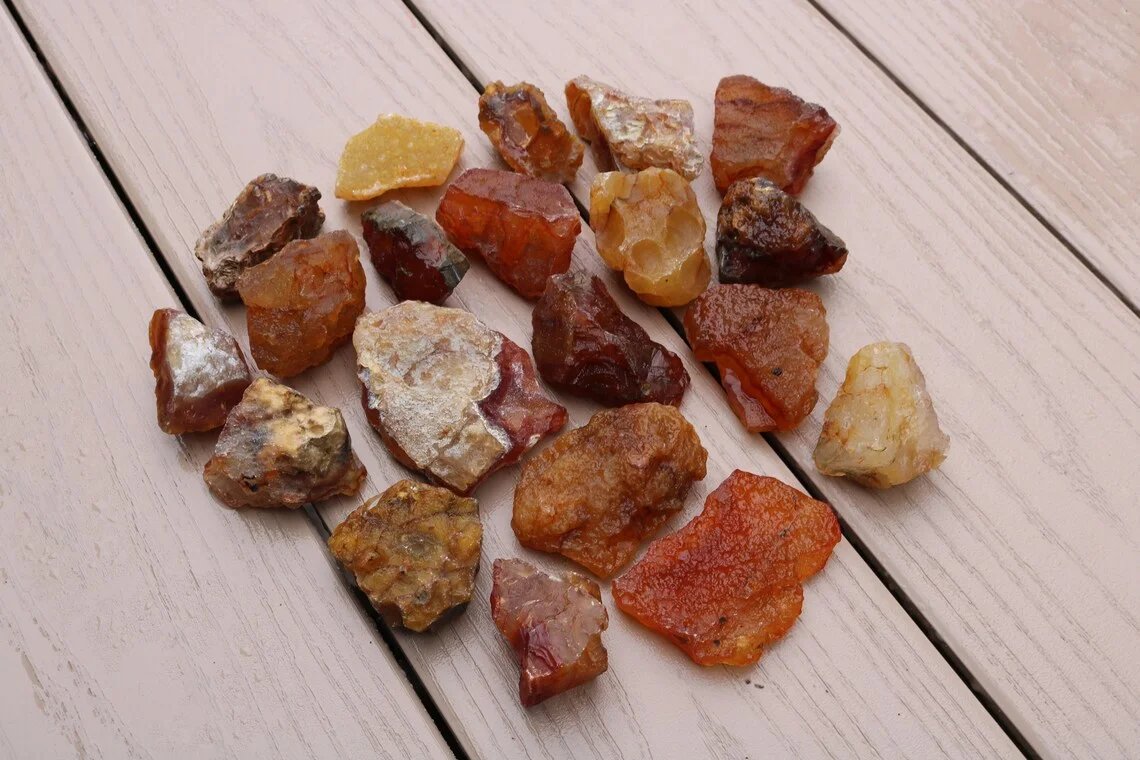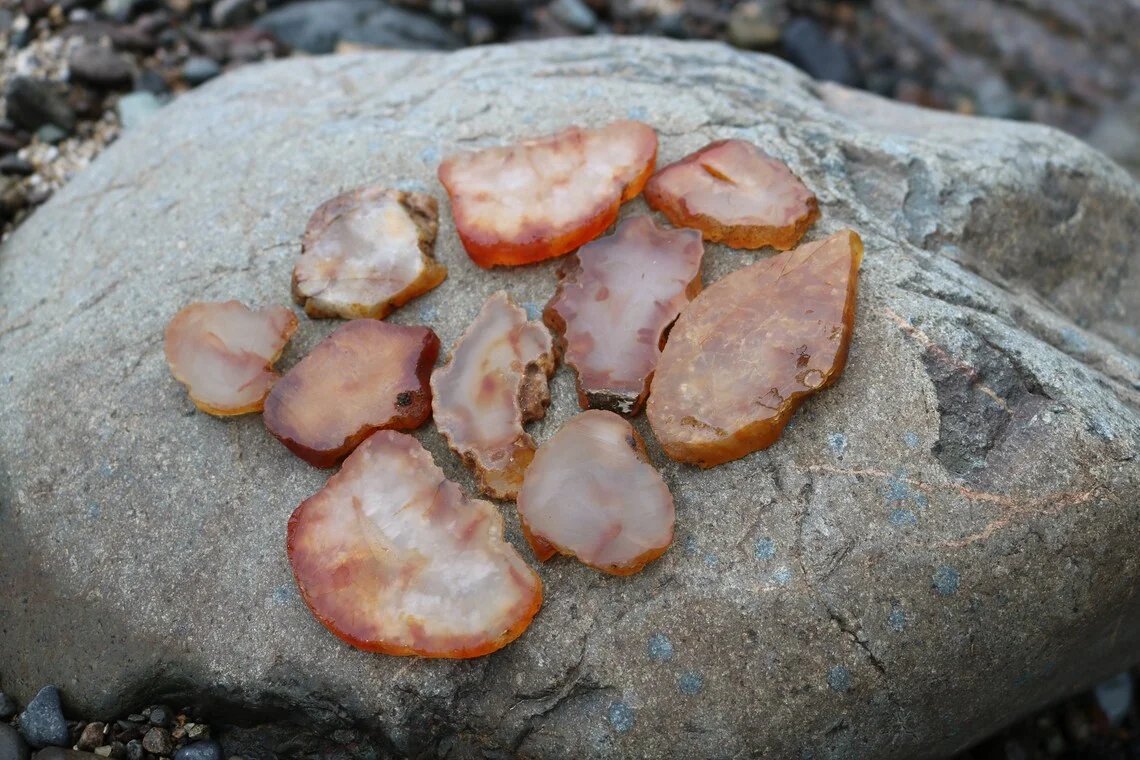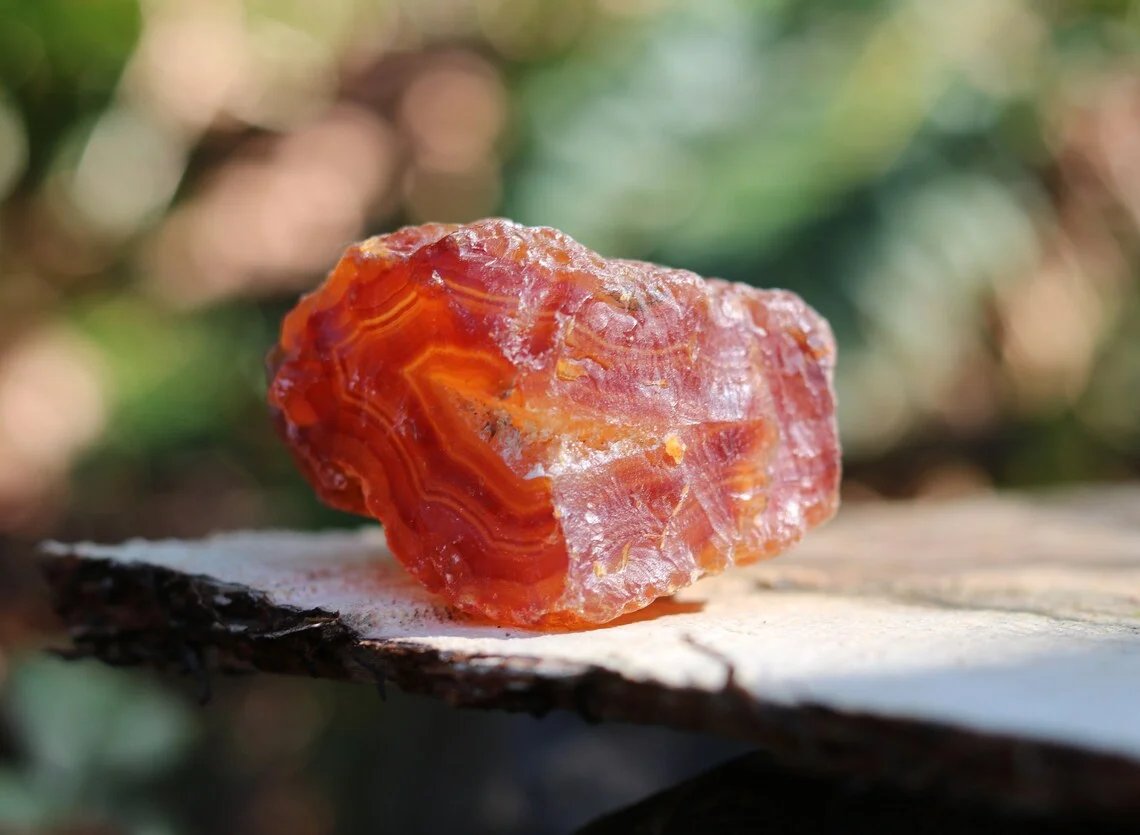Learn the key factors that make carnelian high-quality. This guide dives into the texture, color, and clarity of this captivating gemstone to help you make an informed purchase.
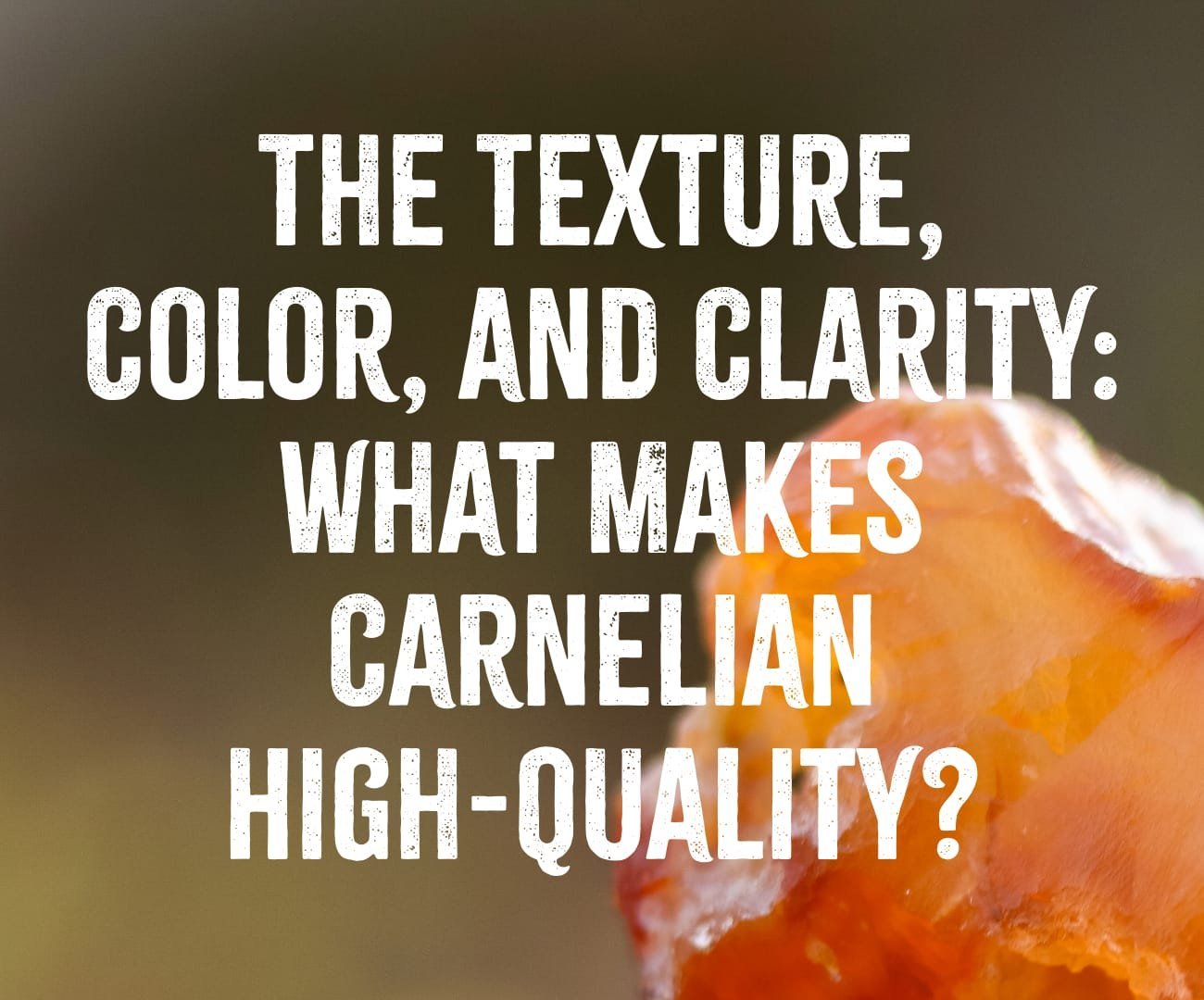
Texture: A Smooth Affair
The texture of carnelian is one of the first things that experienced gemstone collectors look at. A high-quality carnelian should have a smooth texture that feels almost waxy to the touch. This is because the microscopic quartz crystals in carnelian are packed tightly together, resulting in a silky, waxy texture.
If the texture of the stone is gritty or sandy, it's likely of lower quality and may even be an imitation. A grainy texture indicates that the stone's crystal structure isn't as tightly packed as it should be, which will also affect its translucency and color vibrancy.
Color: The Richer, The Better
Arguably the most important factor in determining the quality of carnelian is its color. The ideal carnelian should exhibit a rich, vibrant hue that ranges from a deep, fiery orange to a lush, reddish-brown. In general, the deeper and more saturated the color, the more valuable the carnelian.
Pale shades of orange or brown are generally considered to be of lower quality. However, it's important to note that color preference can be subjective. Some people do prefer the lighter shades for their jewelery or collections, but from a market standpoint, deeper colors fetch higher prices.
Clarity: The See-Through Factor
Another important consideration is the stone's clarity. Carnelian is a variety of chalcedony, which is a type of quartz. High-quality carnelian should be translucent, meaning it allows some light to pass through but is not completely transparent. This level of translucency lends the stone a certain depth and richness that are coveted attributes in the gemstone market.
Low-quality carnelian may appear opaque, lacking the translucency that adds depth to the stone. Opaqueness in carnelian often indicates impurities or a lesser degree of crystalline structure, both of which reduce the stone's overall quality and market value.
Inclusions: Friend or Foe?
Inclusions are foreign materials or slight imperfections within the gemstone. While inclusions are often viewed negatively in many types of gemstones, in carnelian, minor inclusions are generally accepted. In some instances, they can even add to the stone's character and uniqueness.
However, overly included carnelian that has visible cracks, dark spots, or cloudiness is considered lower quality. When examining carnelian for purchase, hold it up to a light source. The light should evenly disperse throughout the stone, without any dark spots or lines.
Synthetic vs. Natural
In today's market, you'll also encounter synthetic carnelian. While synthetic stones can be visually appealing and are often more affordable, they don't possess the natural energies that many believe are beneficial for metaphysical practices. Additionally, synthetic carnelian may not hold its value in the same way that a natural stone does. To ensure you're getting a natural, high-quality carnelian, always buy from reputable dealers.
Final Thoughts
Understanding what makes carnelian high-quality is essential, whether you're a seasoned collector, a jeweler, or someone new to the world of gemstones. By paying attention to its texture, color, and clarity, you'll be better equipped to choose a stone that not only captivates your eyes but also holds lasting value.
Carnelian is a gemstone with a rich history and a brighter future. As more people discover its beauty and potential benefits, the demand for high-quality specimens will continue to grow. Now that you're armed with this knowledge, you're ready to make a discerning choice and find a piece of carnelian that you'll treasure for years to come.
So, next time you find yourself mesmerized by a piece of carnelian, take a moment to examine its texture, bask in its color, and appreciate its clarity. These factors will guide you in selecting a high-quality gem that's worth every penny.
Happy hunting!
Ready to add some genuine sparkle to your life? ✨ Don't miss out on our 100% authentic Carnelian Agates sourced right from Washington State! 🌲🔍 Shop now and add to your gemstone collection! 🛒👉 Shop Our Etsy Store

